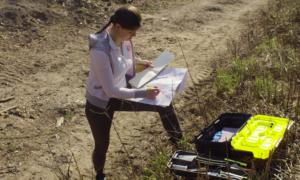Aspen Institute Communications and Society Program and the John S. and James L.Knight Foundation
The paper by Peter Levine of Tufts University, released by the Aspen Institute Communications and Society Program and the Knight Foundation, calls for elected and community leaders to adopt strategies that help fortify citizen engagement and civic communication.
Proposals include creating a Civic Information Corps that would take advantage of the considerable capacity and broad knowledge young Americans have of digital media. Levine suggests that an Information Corps would have a significant impact on the environment and health of local communities.
Other strategies that Levine proposes include engaging young people in building the information and communication capacity of their respective communities, adjusting higher education incentives to turn these institutions into local information centers and mapping the civic networks that exist within communities.
Levine suggests that the adaptation of these strategies will allow local communities to tap into the expertise and innovative attitudes of citizens to create public knowledge and culture that would ultimately benefit the whole community.
He notes that community service and service-learning have grown in the United States and now represent an important resource for communities’ information needs. Levine states that this is a positive change and one that can be utilized to reconstruct the public sphere — although the changes will require reforming service programs as well.
Levine writes that colleges and Universities can be used as central information hubs because they already play a central role as neutral sponsors, brokers, curators and disseminators of information for their local communities. Levine says that some higher education institutions have even replaced some of the functions of the traditional metropolitan daily newspaper.
Another strategy that Levine calls for is for communities to invest more in face-to-face public deliberation. He says it is important to empower all citizens to participate actively in community self-governance including having local “community summits” in order to address community issues and affairs and to pursue common community goals.
The fourth strategy outlined in Levine’s paper refers to the need to generate public relational knowledge. Levine says that citizens of communities need facts about leaders, organizations and key issues. They need rival interpretations of the facts, and deliberative public judgments based on the interpretations they receive. In addition, citizens need to know and understand the relationships among organizations, people and issues.
The final point Levine makes cites the links between information and knowledge. First, information that people can create and use themselves enables them to be more effective as citizens. Second, community citizens need to ensure that they and their descendants have access to reliable information and knowledge and also have the means to use that information effectively.
40 pages, free: www.knightcomm.org/five-strategies-to-revive-civic-communication/































